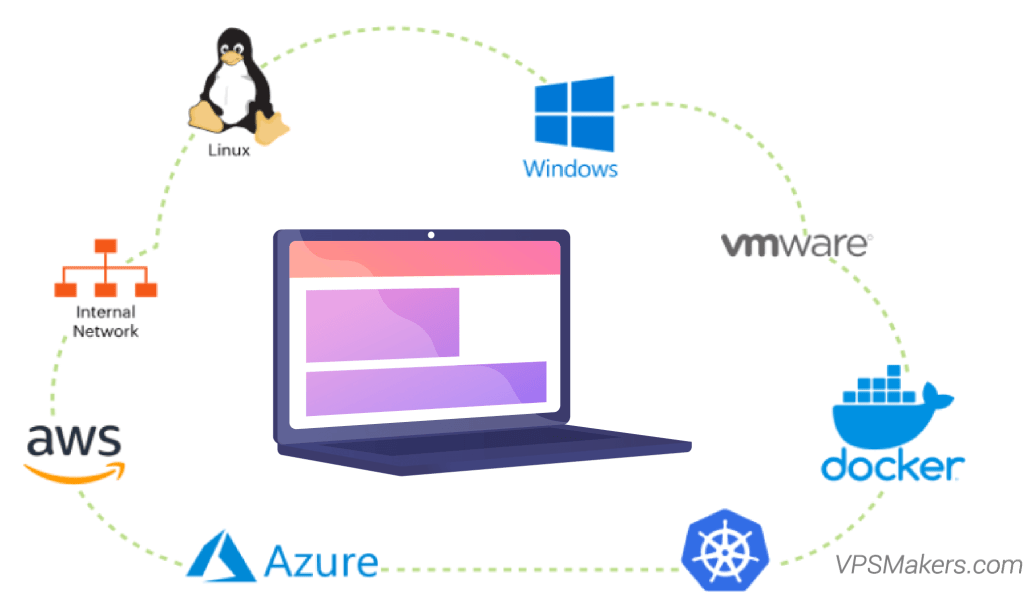VPS Hosting Made Easy: Selecting the Best Operating System
When is Windows VPS hosting the ideal choice?
There are numerous OS choices available for Windows VPS servers, but just one is the optimal OS for VPS.
Not every business website can function in every situation. Windows is the greatest VPS operating system and is specifically required by some apps. Windows VPS stands out from other operating systems because of its fantastic features and association with a reliable brand.
You must select Windows VPS as your preferred operating system for the VPS server under the following circumstances or circumstances:
Windows has been specifically created to handle applications like ASP.NET, MySQL, MS Access, and others when they run on those platforms.
Whenever you require FTP access to move files from your computer to a network and vice versa, you can access online software archives with FTP access.
Windows is the best VPS operating system to ease your working style. Plesk is typically the preferred control panel for Windows. Out of many control panels, Plesk has a reputation for having a user-friendly interface.
Since Microsoft supports Windows, there are no questions about its IT support.
Best Windows OS for VPS Hosting
Here are some of the Best Microsoft Windows Server OS for VPS hosting with a brief description of each:

1 – Windows Server 2022 :
The latest version of Windows Server 2022 with advanced multi-layer security, hybrid capabilities with Azure, and a flexible application platform. It introduces secured-core capabilities to help protect hardware, firmware, and Windows Server OS capabilities against advanced security threats and also provides secured connectivity with faster and more secure encrypted HTTPS connections. It also improves hybrid server management and Windows container capabilities.
2 – Windows Server 2019 :
The latest version of Windows Server 2019 with improved security and hybrid capabilities for cloud integration.
3 – Windows Server 2016 :
A stable and reliable OS Windows Server 2016 for VPS hosting, with added security features and support for containers.
4 – Windows Server 2012 R2 :
A popular choice for VPS hosting Windows Server 2012 R2, with enhanced virtualization capabilities and improved storage management.
5 – Windows Server 2008 R2 :
While no longer supported by Microsoft Windows Server 2008 R2, it is still a viable option for legacy applications and provides stable performance.
6 – Windows Server 2012 Essentials :
A cost-effective solution for small businesses with limited IT resources, Windows Server 2012 Essentials, provides simplified management and easy integration with cloud services.
Remember that the best Windows Server OS for VPS hosting will depend on your specific needs and requirements, such as the type of applications you plan to run, the amount of traffic you expect, and the level of security you require.
What is Linux Server Operating System?
Linux is an operating system’s kernel, or core, which handles all of the system’s related tasks, including memory management, hardware, data control, etc. The kernel is the foundation of any distribution, and the kernel is also the most crucial and significant component of every operating system.
Torvalds also created the original Linux kernel, a major factor in the changes. When we refer to Linux, we mean the open-source distribution of the Linux kernel.
Since there are so many different Linux distributions, users can create their own by altering the code.
There are numerous Linux OS available for various purposes. There are server and graphical variants of Linux. Typically, the server edition is installed by the providers of VPS services.
You need to understand how to use SSH commands to use Linux Server.
Two Linux-based VPS operating systems that are simpler to use and great for beginners are Ubuntu and CentOS. Debian, Fedora, Red Hat, and OpenSUSE are options for more tech-savvy users.

When is Linux VPS hosting the ideal choice?
Depending on the kind of need, the user bases of Linux and Windows can differ. Like Windows, Linux also ensures increased efficiency and all the other advantages of a VPS host. But there are situations when Linux as an operating system is preferred:
- Linux is the ideal OS for VPS if you don’t have access to that many resources.
- When you want to avoid rebooting daily because it gets hectic under heavy workloads.
- When you need greater flexibility.
- When using a reliable control panel, such as cPanel.
- When you need both FTP and SSH.

Best Linux OS for VPS Hosting
Discover the top OS for Linux VPS hosting in this comprehensive list that includes popular options like Ubuntu Server, CentOS Stream, Debian, and Fedora Server, as well as community-driven alternatives like Almalinux and Rocky Linux. Get a brief overview of each OS and recent versions to help you choose the ideal one for your VPS hosting needs.
1 – Ubuntu Server :
ubuntu server 22.04 LTS (latest), 20.04 LTS – The latest and previous version of the popular Linux Server OS with long-term support, a large community, and extensive documentation.
2 – CentOS Stream :
Cent OS Stream 9 (latest), 8 – The latest and previous version of the cutting-edge Linux Server OS with rolling updates that enables you to test and develop new features before they are released in the stable version.
3 – Debian :
Debian 11 (latest), 10 – The latest and previous version of the reliable and flexible Linux Server OS that is highly customizable and suitable for a wide range of applications. It is known for its package management system and security features.
4 – Fedora Server :
Fedora Server35 (latest), 34 – The latest and previous version of the cutting-edge Linux Server OS that is designed for developers and advanced users. It offers the latest software versions and innovative features for virtualization and containerization.
5 – Almalinux :
Almalinux 8.4 (latest) – A community-driven Linux Server OS that is a 1:1 fork of CentOS 8. It offers long-term support, stability, and security features.
6 – Rocky Linux :
Rocky Linux 8.4 (latest) – A community-driven Linux Server OS that is also a 1:1 fork of CentOS 8. It offers long-term support and is designed to be a stable and secure alternative to CentOS.
Conclusion
Well, in this article, we have explained the Linux and Windows operating systems. In general, if your Windows RAM is 1 GB, you should install the 2012 R2 version, if it is 2 GB, the 2016 version, and if the RAM is 4 GB, you should install the 2019 version or higher. We said it, but if anyone wants, they can also install the 2019 version on RAM 1. Share your experiences with us.
